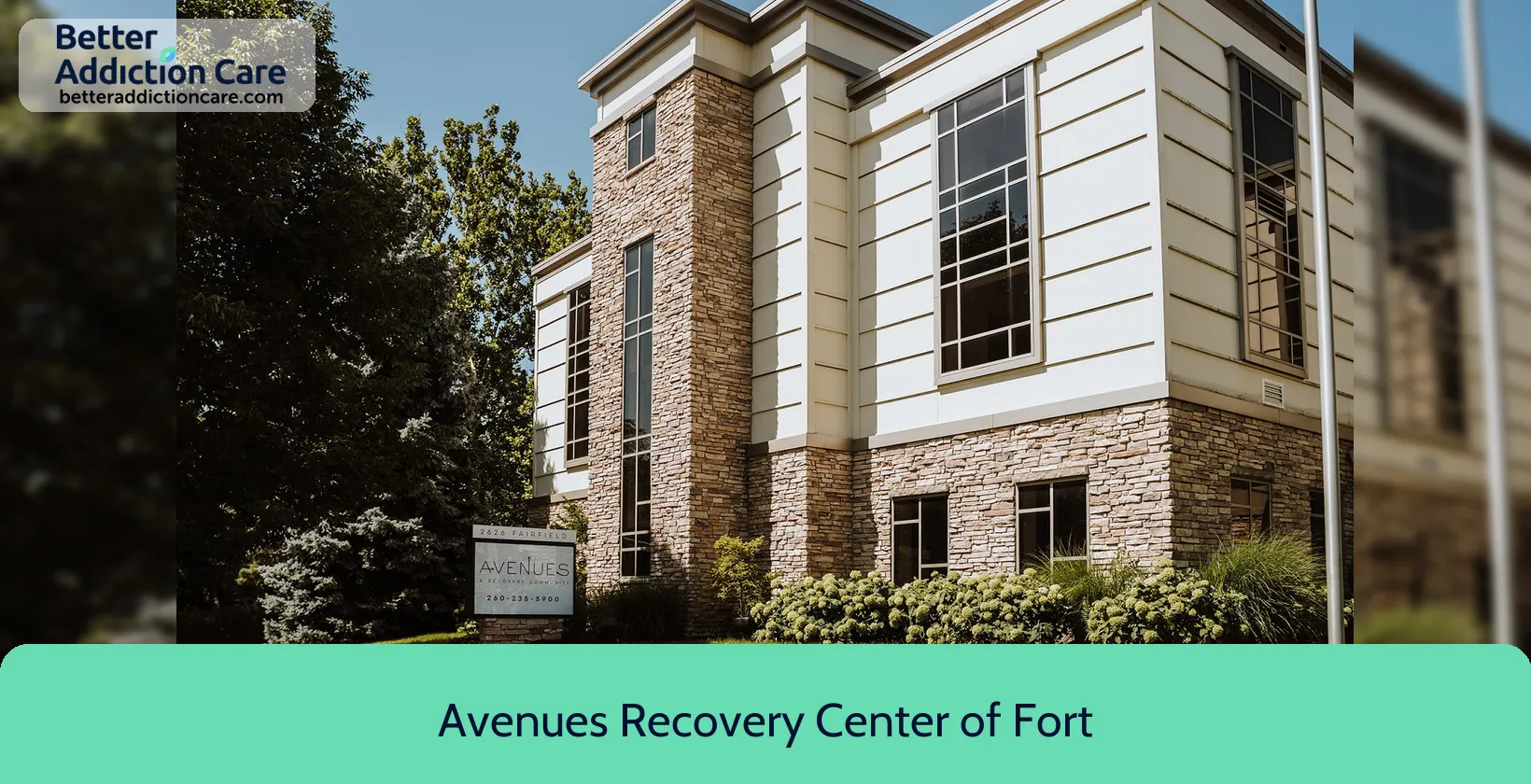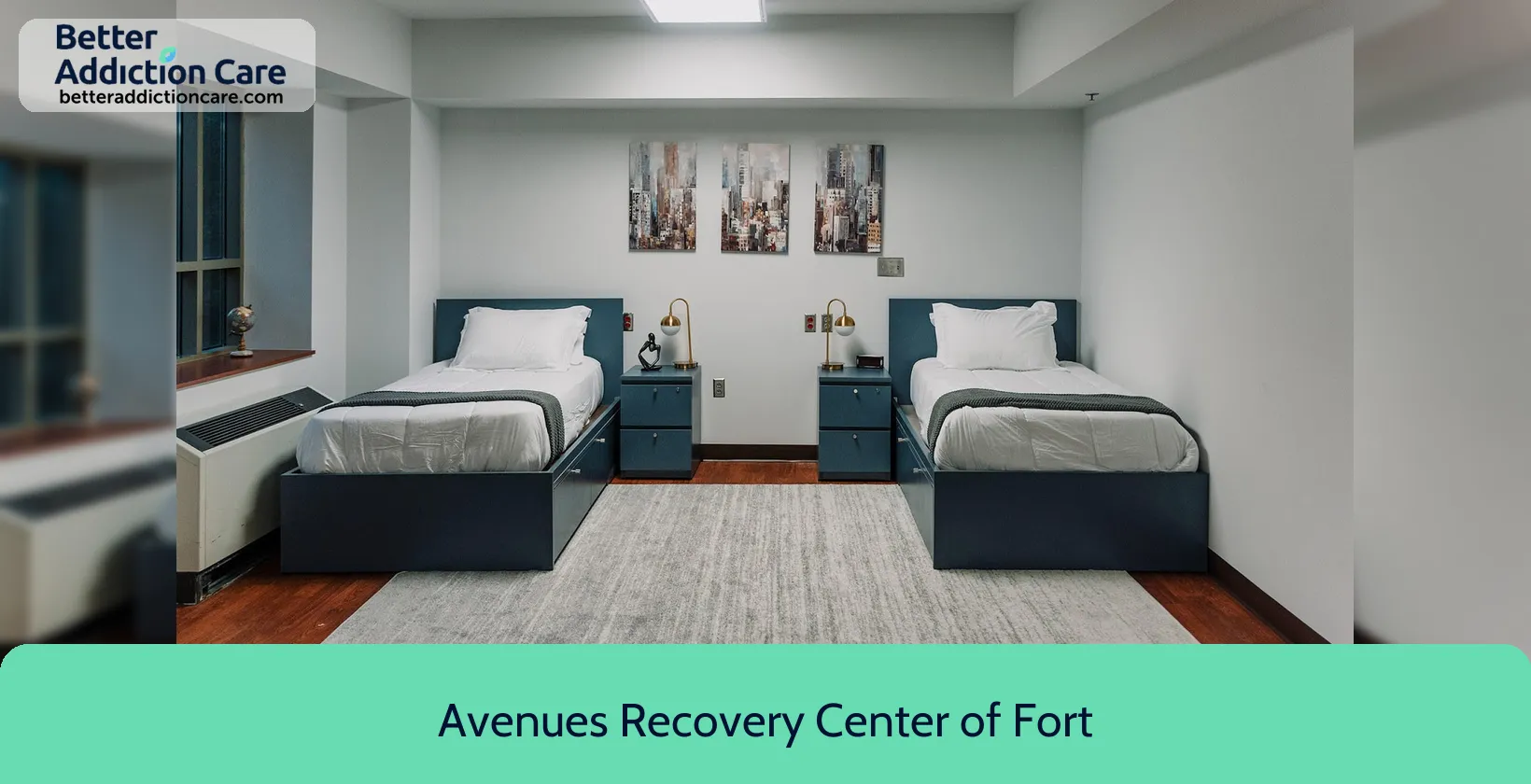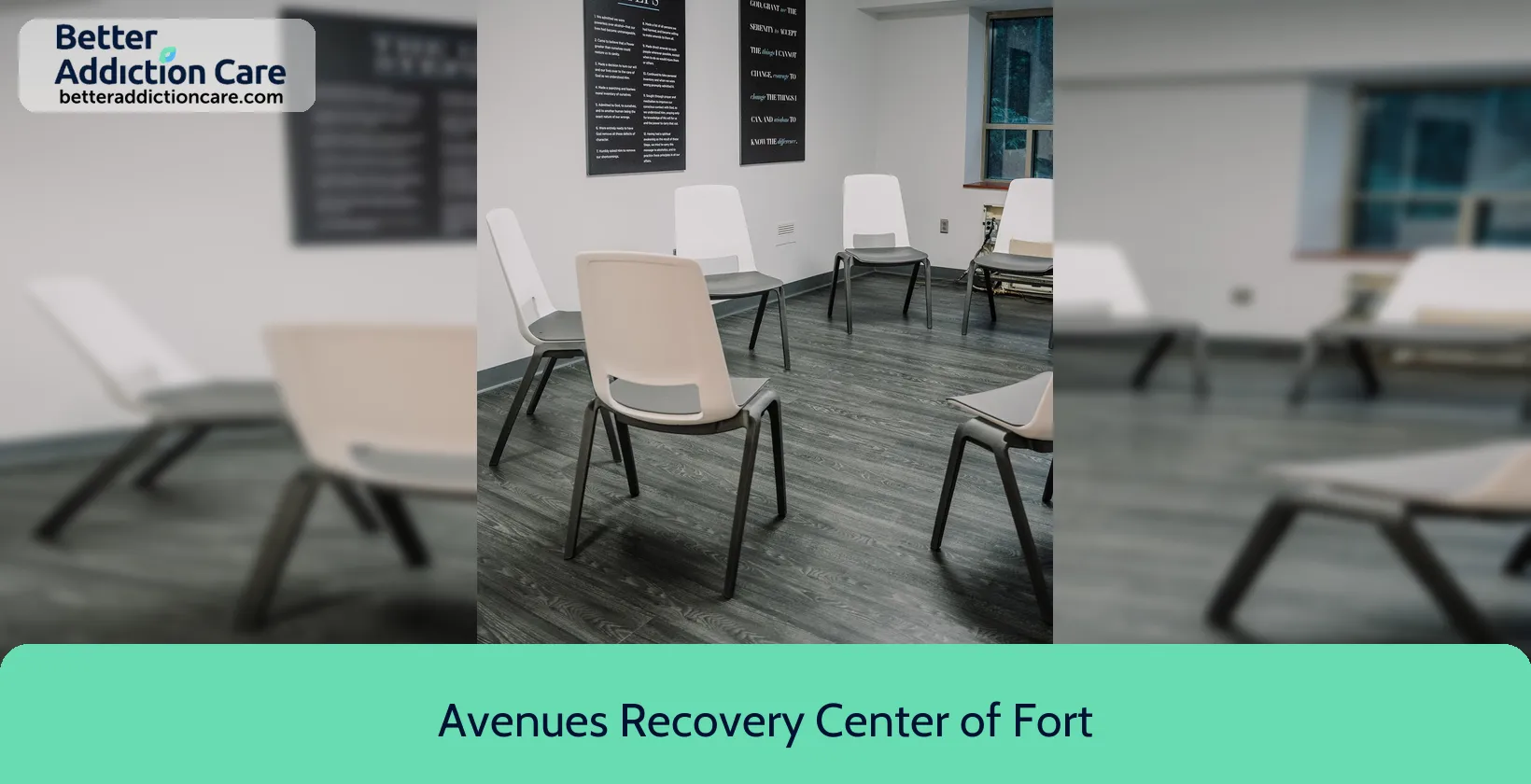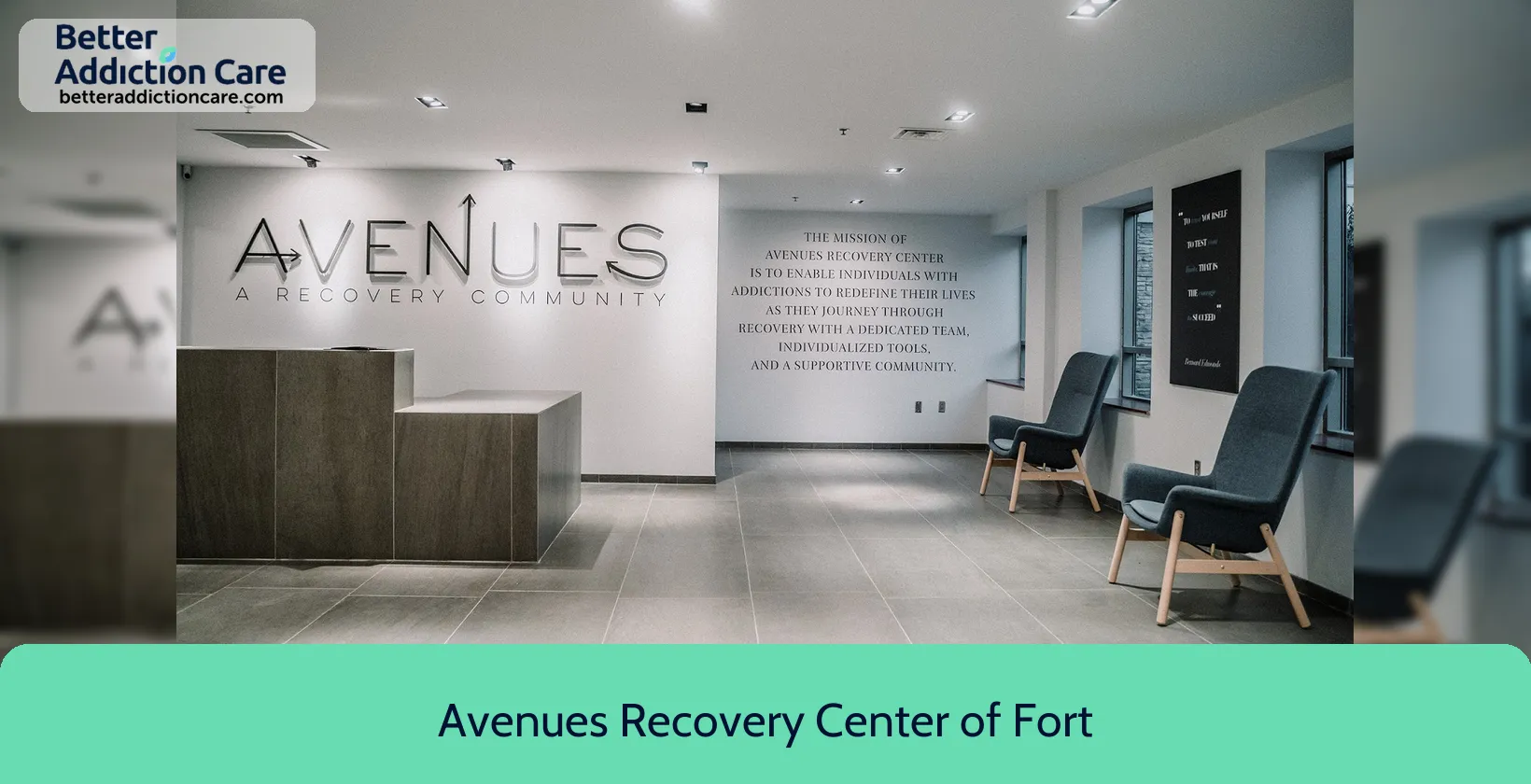Avenues Recovery Center of Fort Wayne
Overview
Modern addiction therapy is provided at Avenues Recovery Center in Fort Wayne, Indiana. It provides a complete spectrum of treatments, including medication-assisted treatment (MAT), outpatient therapies, inpatient detox, residential treatment, and extensive aftercare programs. Avenues treatment Center is well-known for its cutting-edge, hotel-style lodgings and all-encompassing approach to treatment. Its long-term sobriety success record is an astounding 95%.
At Avenues, detox is often the first step in residential treatment to ensure that patients can safely get through the withdrawal phase before advancing to the more regulated aspects of their recovery. After their condition has stabilized, residents participate in a range of therapeutic activities, such as engaging courses and groups, individual treatment, and activities centered around their rehabilitation. With a variety of treatment modalities including personalized individual therapy, family and group counseling, 12-step meetings, and alternative therapies like art, music, yoga, meditation, and nature-based therapies, the facility's holistic approach to treatment is made to meet the specific needs of each client.
The building itself is meant to provide a cozy and encouraging atmosphere; it has large, modern rooms, a fully functional gym, game areas, and fine dining options. This environment promotes calm and relaxation, enabling clients to give their whole attention to their rehabilitation.
The flexible outpatient program at Avenues Recovery Center is available to those who would rather continue their therapy at home. This program gives clients access to the same excellent therapies as the residential program, enabling them to continue taking care of their personal, family, school, or employment obligations while getting the support they need.
Avenues' aftercare program is meant to continue offering community and support even after official treatment is over. This program blends aspects of a social club with a support system, including enjoyable excursions, frequent check-ins with counselors, weekly group meetings, and an alumni-only Facebook profile. Sober living apartments provide more structure and assistance for those readjusting to normal life.
The Avenues Recovery Center is steadfast in its dedication to every client's long-term success. Since real, long-lasting recovery takes time, the program is flexible, with durations of stay customized to meet individual requirements. The center's extensive alumni program makes sure that clients stay a part of a community that is sympathetic to their situation and offers them the continuous assistance they need to stay sober and lead happy lives.
Avenues Recovery Center has shown its dedication to provide reliable, high-quality treatment by earning accreditation from the Joint Commission and CARF, as well as a LegitScript verification in December 2020.
Avenues Recovery Center of Fort Wayne at a Glance
Payment Options
- Cash or self-payment
- Medicaid
- Private health insurance
- Federal military insurance (e.g., TRICARE)
- Sliding fee scale (fee is based on income and other factors)
Assessments
- Screening for tobacco use
- Comprehensive mental health assessment
- Comprehensive substance use assessment
- Screening for mental disorders
- Screening for substance use
Age Groups
- Seniors or older adults
- Young adults
- Adults
- Seniors
Ancillary Services
- Case management service
- Integrated primary care services
- Suicide prevention services
- Mental health services
- Transportation assistance
Highlights About Avenues Recovery Center of Fort Wayne
7.68/10
With an overall rating of 7.68/10, this facility has following balanced range of services. Alcohol Rehabilitation: 8.00/10, Drug Rehab and Detox: 8.77/10, Insurance and Payments: 6.00/10, Treatment Options: 7.94/10.-
Drug Rehab and Detox 8.77
-
Alcohol Rehabilitation 8.00
-
Treatment Options 7.94
-
Insurance and Payments 6.00
Accreditations
State department of health:

Government agencies issue State Licenses, which grant rehabilitation organizations permission to conduct their operations lawfully within specific geographic regions. Licenses needed to operate are typically determined by the type of rehabilitation program offered by the facility and its physical location.
LegitScript:

LegitScript certification is awarded to programs and services that successfully complete a stringent application process initiated in 2018. This process ensures eligibility for credible providers offering mental health and co-occurring substance abuse treatment within Google's network while complying with HIPAA privacy laws.
Commission on Accreditation of Rehabilitation Facilities (CARF):

CARF accreditation is a globally recognized certification for rehabilitation and human service organizations. It signifies that an organization meets high-quality standards and is committed to providing top-level care. Achieving CARF accreditation involves a rigorous evaluation process, including on-site surveys. This accreditation enhances an organization's reputation, instills trust in clients and funders, and encourages ongoing excellence in the field.
The Joint Commission:

The Joint Commission accreditation for addiction and behavioral health is a prestigious recognition signifying a facility's commitment to delivering high-quality care and safety for individuals dealing with substance abuse and mental health issues. It involves rigorous evaluations and assessments, ensuring patients receive evidence-based treatment and exceptional care. This accreditation demonstrates a facility's dedication to continuous improvement and ethical practices, building trust among patients and healthcare professionals seeking top-tier addiction and behavioral health services.
Treatment At Avenues Recovery Center of Fort Wayne
Treatment Conditions
- Mental health treatment
- Alcoholism
- Substance use treatment
- Co-occurring Disorders
- Opioid Treatement
Care Levels
- Hospital inpatient treatment
- Outpatient
- Short-term residential
- Long-term residential
- Residential detoxification
Treatment Modalities
- Cognitive behavioral therapy
- Telemedicine/telehealth therapy
- Substance use disorder counseling
- Trauma-related counseling
- Smoking/vaping/tobacco cessation counseling
Ancillary Services
Additional Services
- Pharmacotherapies administered during treatment
- Housing services
- Breathalyzer or blood alcohol testing
Special Programs
- Clients with co-occurring mental and substance use disorders
- Clients who have experienced trauma
- Clients with co-occurring pain and substance use disorders
Get Help Now
Common Questions About Avenues Recovery Center of Fort Wayne
Contact Information
Other Facilities in Fort Wayne

6.65

6.59

7.40

7.29

6.84

6.74
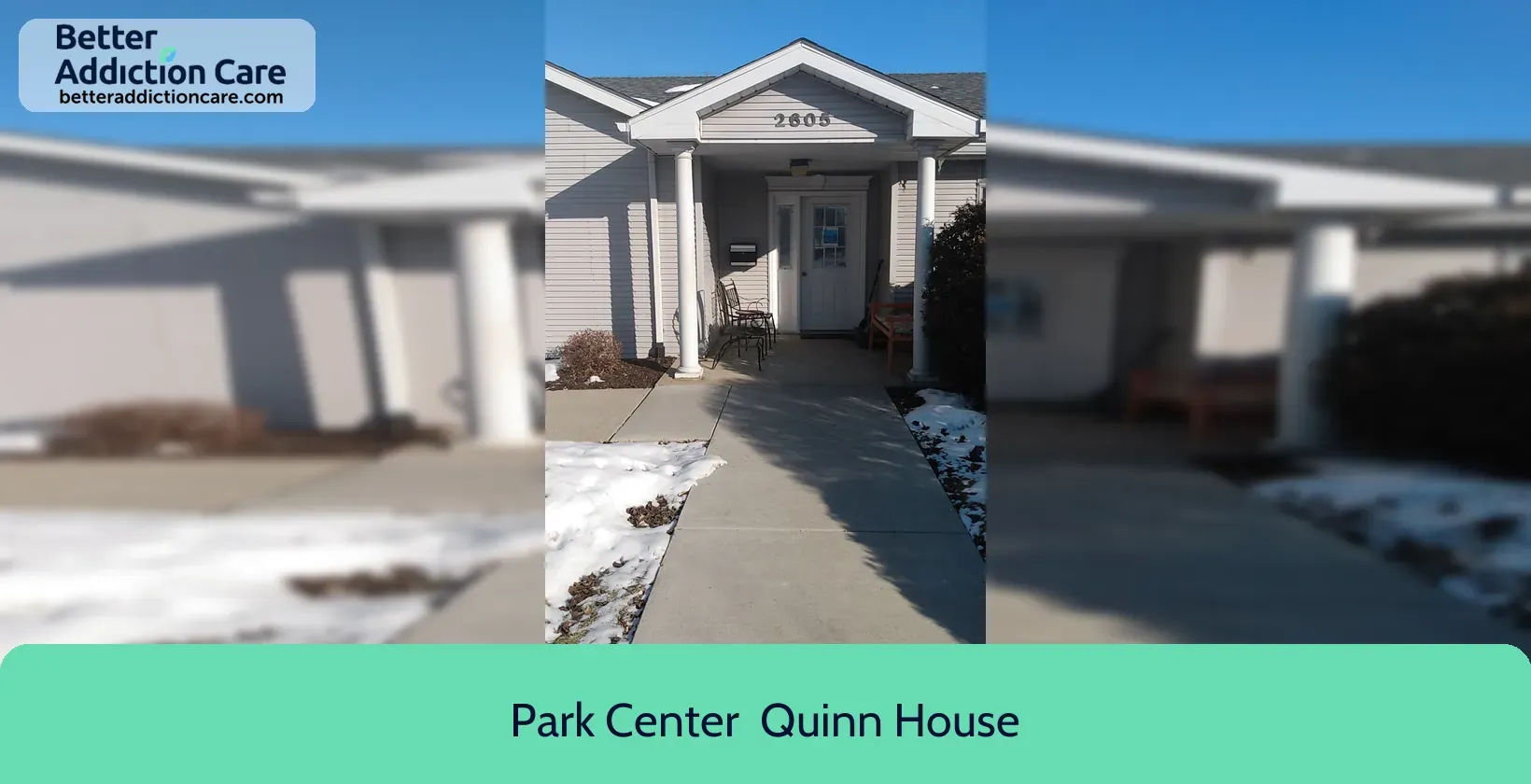
6.59
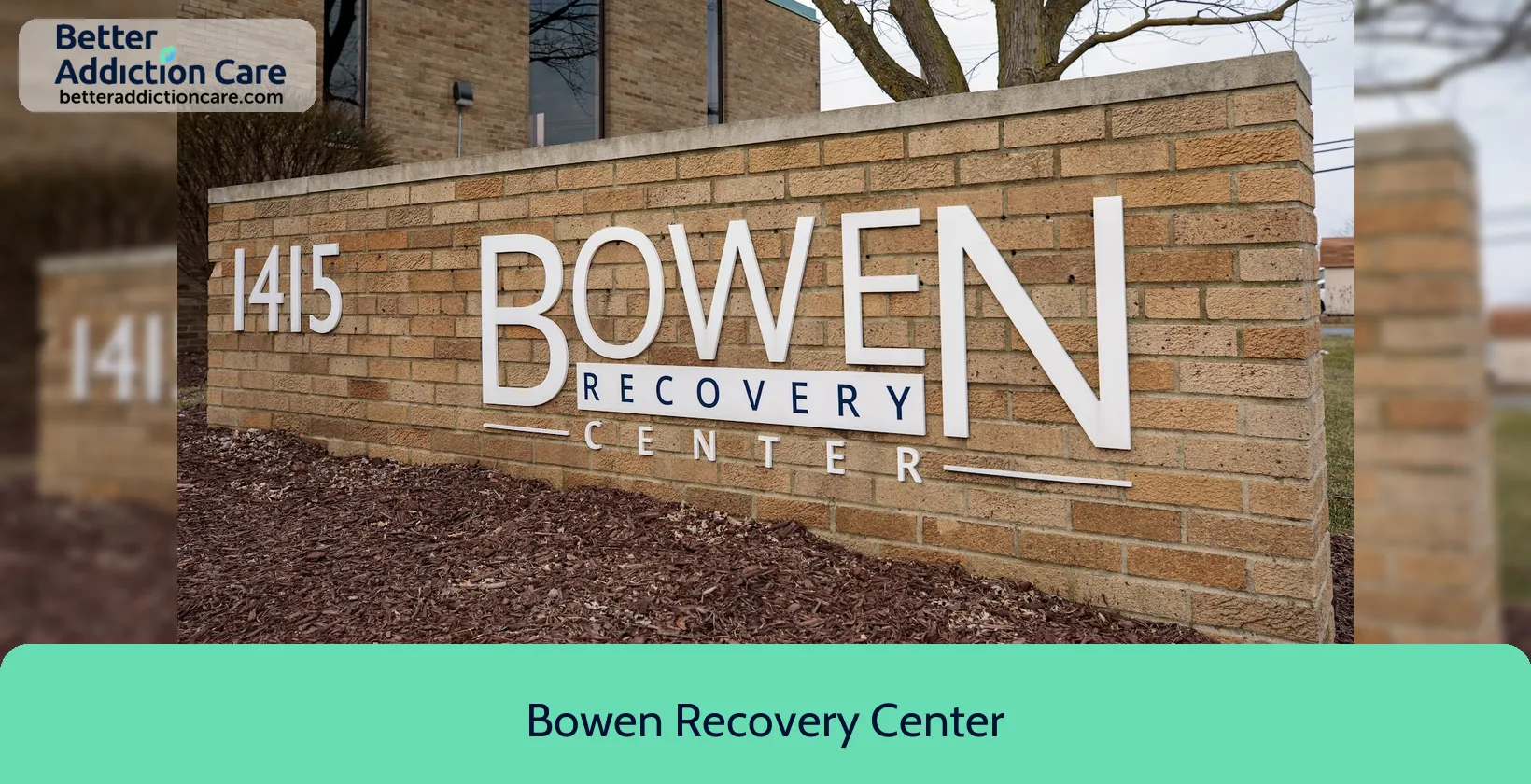
6.85
DISCLAIMER: The facility name, logo and brand are the property and registered trademarks of Bowen Recovery Center, and are being used for identification and informational purposes only. Use of these names, logos and brands shall not imply endorsement. BetterAddictionCare.com is not affiliated with or sponsored by Bowen Recovery Center.
